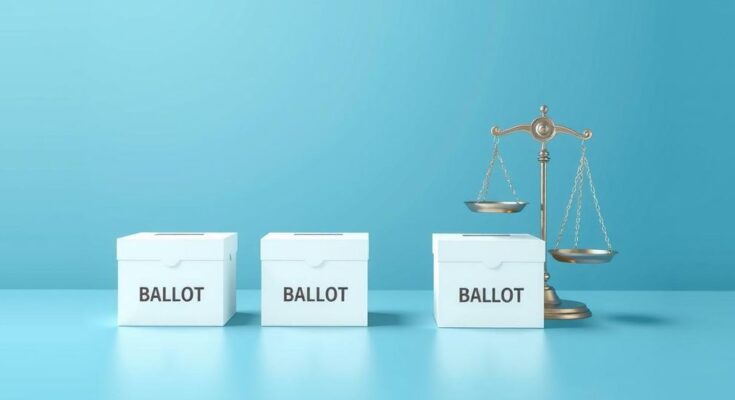President Trump has signed an executive order to change U.S. voting procedures, requiring proof of citizenship for voter registration and restricting mail-in ballots. Legal challenges are anticipated, and the order also outlines penalties for states failing to comply. Historical analyses suggest that voter fraud is not as pervasive as claimed.
On Tuesday, President Donald Trump enacted an executive order that proposes significant alterations to the voting process in the United States, following his persistent assertions of voter fraud. The order criticizes the federal government for lacking essential election protections and claims that the previous administration did not adequately verify voters’ citizenship in recent elections.
The directive seeks to modify the voting registration process, update voter records, and reform voting systems, with the expectation that it may face legal challenges, as reported by The Wall Street Journal.
Notably, the executive order stipulates that documentary proof of U.S. citizenship will be required for voter registration in federal elections, including identification forms such as U.S. passports, Real ID-compliant driver’s licenses, military IDs, or other government-issued forms.
Additionally, the order imposes restrictions on absentee and mail-in ballots, stating that they cannot be counted if received after Election Day, even though certain jurisdictions currently accept such ballots if postmarked by Election Day, according to the Associated Press.
States failing to comply with the order may risk losing federal funding and grants associated with elections. The Department of Government Efficiency, led by tech billionaire Elon Musk, is anticipated to work alongside the Department of Homeland Security to oversee voter registration lists and ensure compliance with the new regulations.
It is essential to note that studies indicate that voter fraud is not the widespread concern that has been claimed by Trump. An analysis from the Associated Press revealed that there were few instances of verified voter fraud in contested states, concluding that such cases did not impact election results. Moreover, a report anticipated by Trump’s own campaign corroborated the absence of significant election fraud claims.
President Trump’s recent executive order aims to implement decisive changes in the U.S. voting procedures, particularly emphasizing voter registration requirements and restrictions on mail-in ballots. Despite these adjustments, historical analyses reveal that voter fraud is not prevalent in U.S. elections. The potential for legal challenges looms over the order as its implications unfold.
Original Source: www.forbes.com




